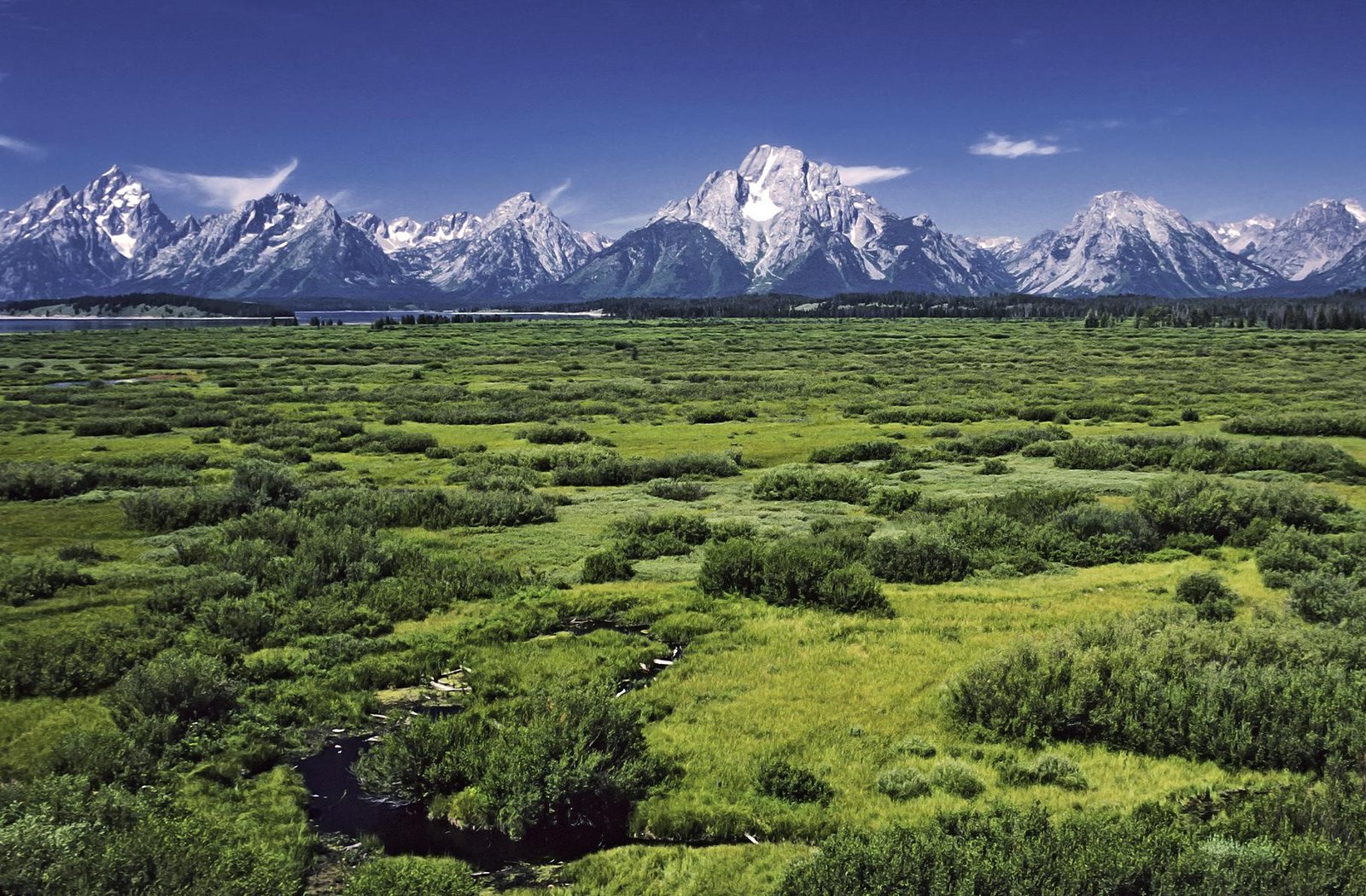Grand Teton National Park offers an extraordinary wilderness experience nestled in northwestern Wyoming, featuring dramatic mountain landscapes, pristine alpine lakes, and an incredible diversity of wildlife. Spanning approximately 310,000 acres, this remarkable park provides visitors with unparalleled opportunities for hiking, photography, wildlife observation, and immersive natural exploration across the stunning Teton Mountain Range.
Why Choose Grand Teton National Park?
What Makes the Landscape Unique?
The Teton Mountain Range represents a geological marvel, with jagged peaks rising dramatically from the valley floor without foothills. These mountains, composed primarily of granite, create a stunning vertical landscape that offers:
- Dramatic 13,000-foot mountain peaks
- Over 200 miles of hiking trails
- Multiple alpine lakes
- Diverse ecosystems ranging from sagebrush plains to alpine tundra
What Wildlife Can Visitors Expect?
Grand Teton National Park hosts an extraordinary array of wildlife, including:
| Animal Species | Population Estimate | Best Viewing Locations |
|---|---|---|
| Moose | 500-1,000 | Willow Flats, Gros Ventre River |
| Elk | 4,000-5,000 | Elk Ranch Flats, Jackson Lake Lodge |
| Grizzly Bears | 50-60 | Northern park regions |
| Bald Eagles | 20-30 breeding pairs | Snake River corridor |
How Accessible Are Park Attractions?
The park offers multiple accessibility options for visitors:
- Road Access:
- Main park road (Teton Park Road) open year-round
- Multiple scenic turnouts with parking
-
Wheelchair-accessible trails and viewpoints
-
Visitor Centers:
- Moose Visitor Center
- Jenny Lake Visitor Center
- Colter Bay Visitor Center
What Photography Opportunities Exist?
Photographers will find endless inspiration through:
- Sunrise/sunset mountain reflections
- Wildlife photography opportunities
- Landscape panoramas
- Seasonal color variations
When Should You Plan Your Visit?
| Season | Highlights | Recommended Activities |
|---|---|---|
| Summer | Peak wildlife activity | Hiking, camping, wildlife viewing |
| Fall | Autumn colors, elk rut | Photography, wildlife watching |
| Winter | Snow-covered landscapes | Cross-country skiing, snowshoeing |
| Spring | Wildflower blooming | Wildlife emergence, landscape photography |
What Recreational Activities Are Available?
Visitors can enjoy:
– Hiking 200+ miles of trails
– Camping in designated campgrounds
– Fishing in alpine lakes and rivers
– Kayaking and boating
– Wildlife photography
– Ranger-led educational programs
How to Prepare for Your Visit?
Essential preparation tips:
– Check weather conditions
– Bring appropriate clothing layers
– Carry bear spray
– Pack sufficient water and snacks
– Obtain necessary park permits
– Follow wildlife viewing guidelines
What Makes Grand Teton Unique?
Unlike many national parks, Grand Teton offers:
– Immediate mountain access
– Diverse wildlife populations
– Minimal crowds compared to more famous parks
– Proximity to Jackson Hole
– Varied terrain and ecosystems
What Are Visitor Costs?
| Entry Type | Cost (as of 2023) |
|---|---|
| Private Vehicle | $35 per vehicle |
| Motorcycle | $30 per motorcycle |
| Individual | $20 per person |
| Annual Pass | $70 |
Final Recommendations
Grand Teton National Park offers an unparalleled wilderness experience that combines stunning natural beauty, diverse wildlife, and numerous recreational opportunities. Whether you’re a photographer, hiker, wildlife enthusiast, or simply seeking tranquility, this park promises an unforgettable adventure.
References:
– National Park Service – Grand Teton
– Grand Teton Wildlife Viewing Guide
– Wyoming Tourism Board

